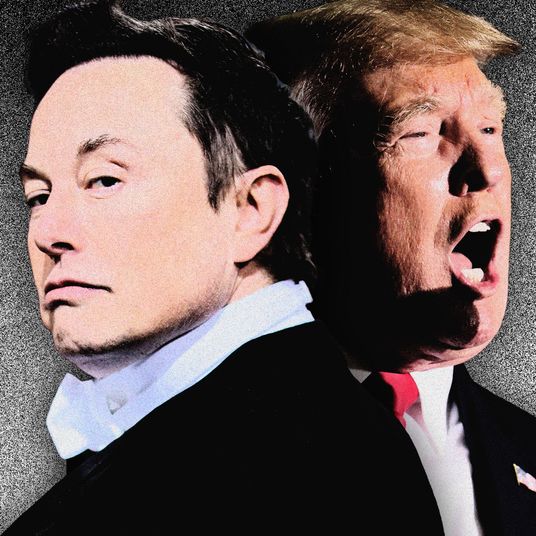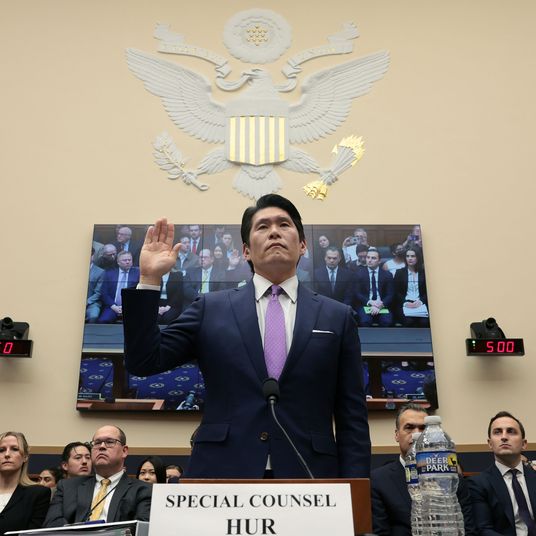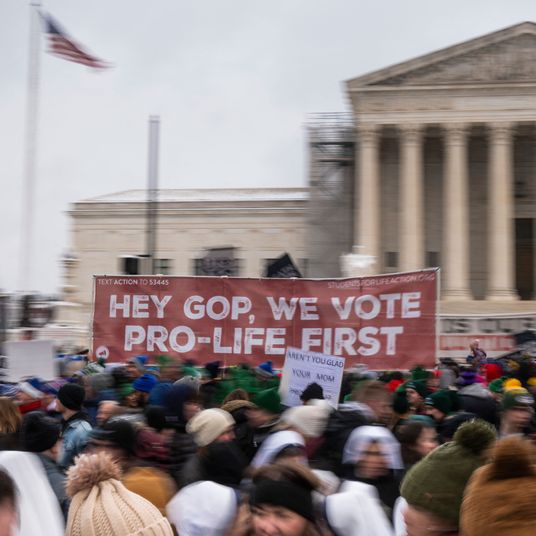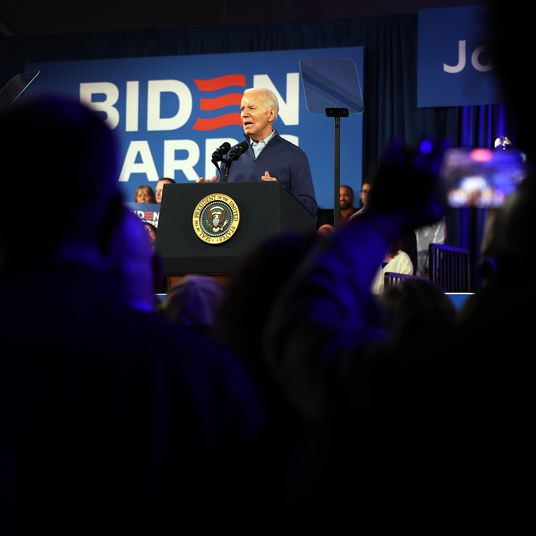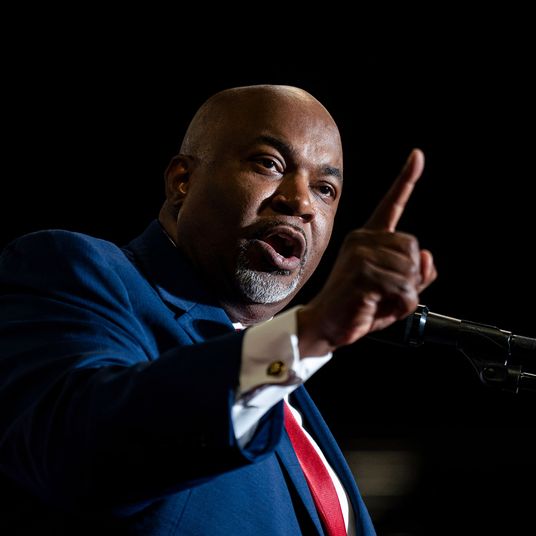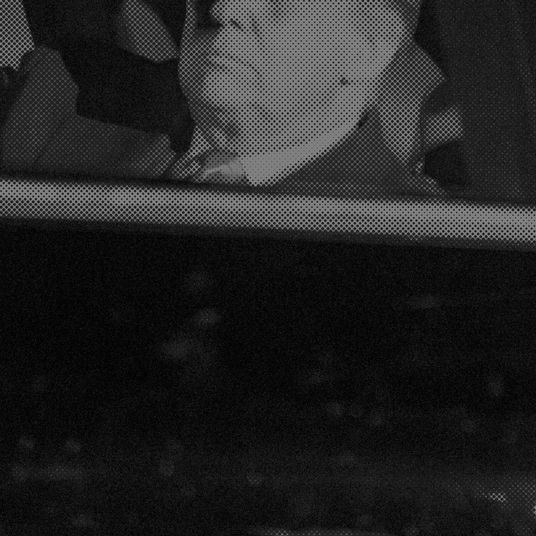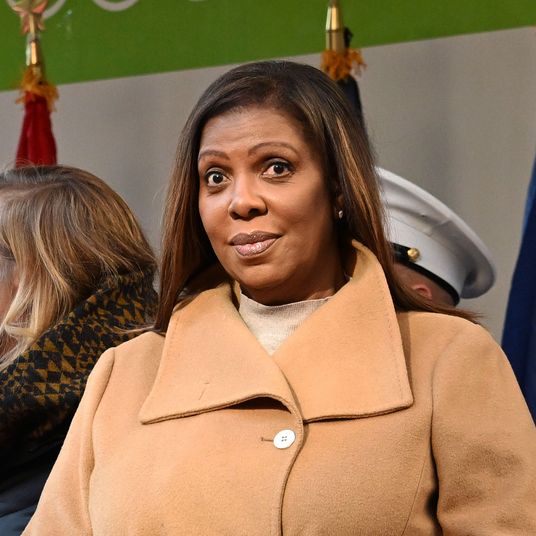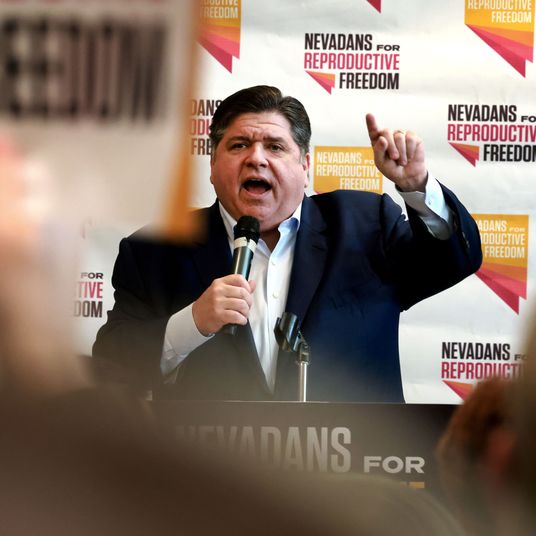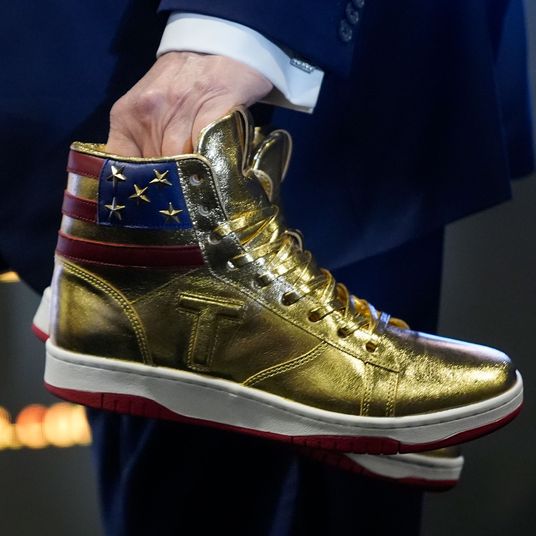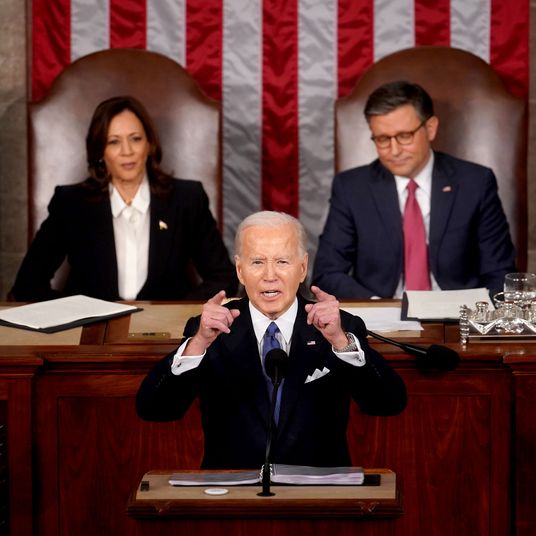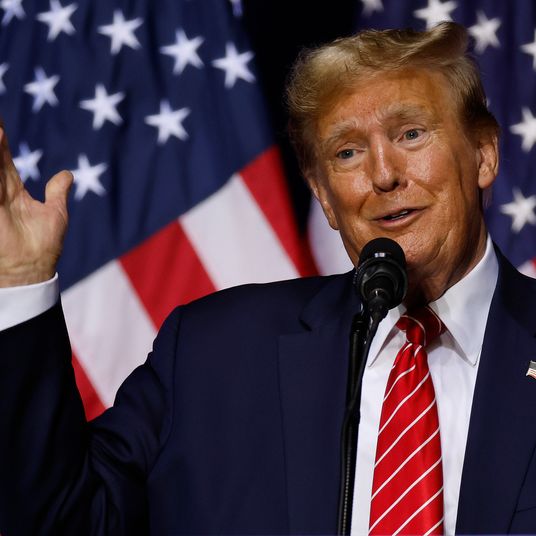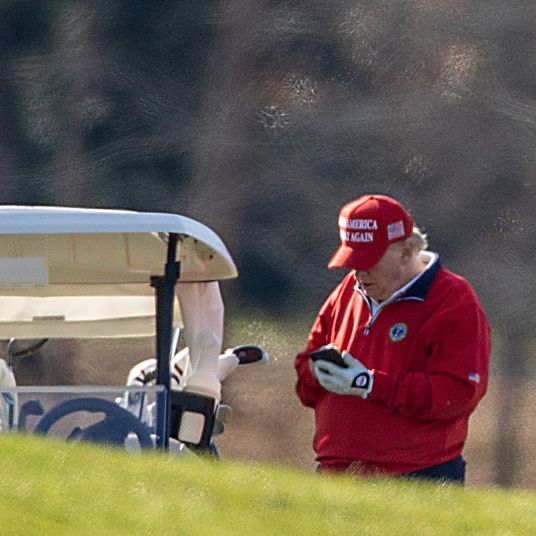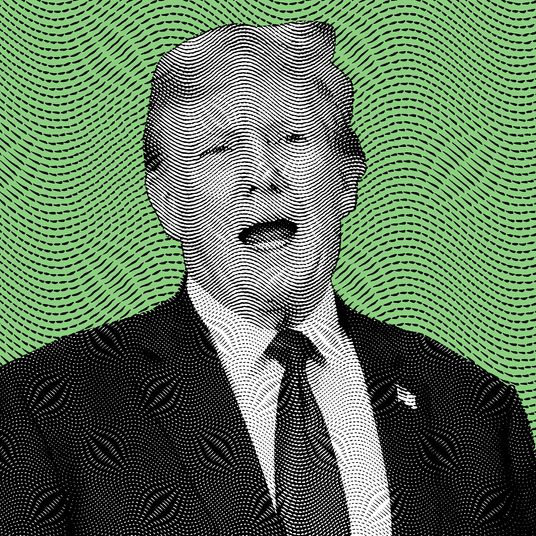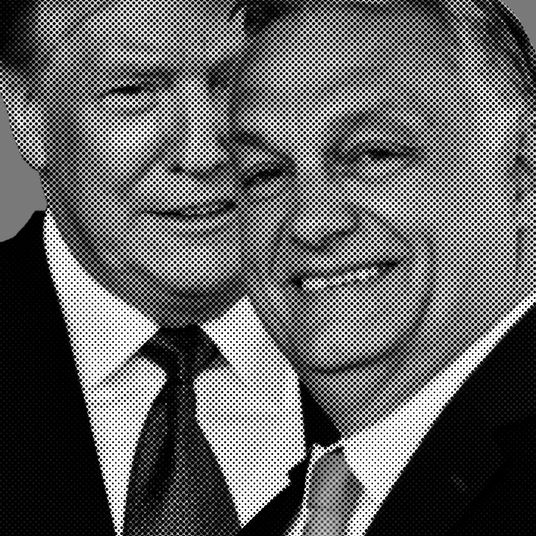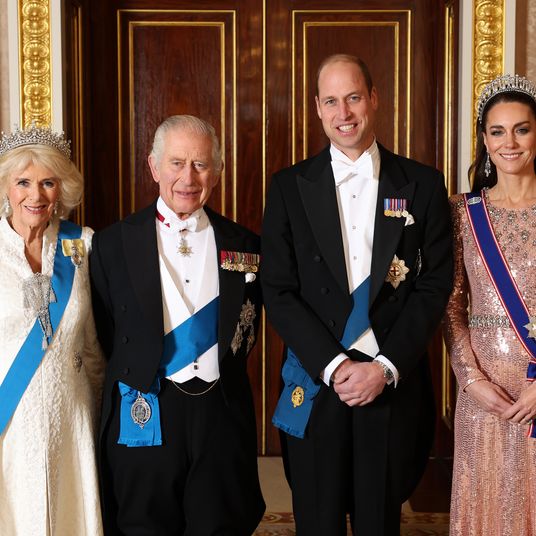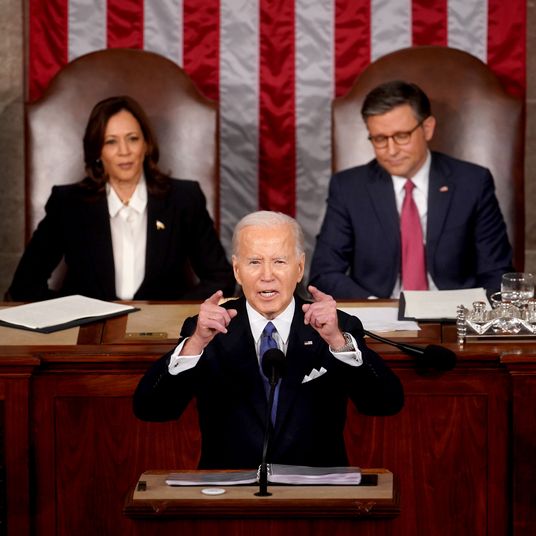Donald Trump is not going to speak to striking autoworkers on Wednesday. He is going to a non-union auto supplier in Michigan, where he will perform a pro-labor routine in front of workers who are not represented by the UAW. You could be forgiven for thinking otherwise after reading recent press coverage, which has portrayed Trump as some iconoclastic friend of workers.
Take Politico, for example. The first line of a Wednesday night newsletter on the GOP’s coming “labor realignment” said, falsely, that the former president will “address striking auto workers.” (Politico has since deleted “striking, but without a correction. The original version is still visible on the Wayback Machine.) The piece, curiously, does note that the actual location of Trump’s speech in a later paragraph is “Drake Enterprises, a non-union shop” — so why open with a falsehood? Everything else that follows is flawed.
The story goes on to make a muddled case for the supposed realignment, citing Senator Josh Hawley’s visit to a Missouri picket line without mentioning his support for an anti-union “right to work” law. Senator J.D. Vance did say that “workers deserve to get their end of the shake,” but on X, the senator criticized UAW leadership for embracing Joe Biden’s “war on American cars.” It does note that Trump did better than most Republicans have with union households in 2016 but adds that he did a lot worse in 2020. The best evidence Politico can muster for this labor realignment is polling from a right-wing think tank, which shows that 41 percent of Republicans believe unions are a “positive force.” Oren Cass, the former Mitt Romney adviser who leads the think tank, told Politico, “There is no going back to a pre-Trump, 1980s-style conservatism.”
Except once you strip away Trump’s bluster, you see a recognizably Republican creature. His labor lies are proof. The former president wanted people to believe he was speaking to striking autoworkers, but the UAW had not invited him and its president, Shawn Fain, had sharply criticized Trump. The press fell for Trump’s lies anyway.
It wouldn’t be fair to single out Politico without mentioning the New York Times, which reported a day after Biden’s appearance with the UAW in Michigan that Trump has “a mixed legacy on unions.” The accompanying story focuses more on Trump’s personal record as a businessman than on his record as president, which was without exception anti-union and anti-worker. Though the Times does note that his picks to lead the labor department were anti-worker and that he issued executive orders hostile to unions, it makes a lot out of a Trump tale that turned out to be a lie. In 2016, he publicly supported workers facing layoffs at a Carrier plant in Indiana that was outsourcing to Mexico. He pledged a huge tariff to stop such a thing from happening. In the final line of the piece, a reader will learn that Trump, as president, did not follow through. “He lied completely,” as one worker put it. Instead, less than half the jobs were saved and only thanks to incentives from Indiana. There’s his real legacy.
Here’s what else we know about Trump and labor. His Labor secretary, Eugene Scalia, was resolutely anti-union and anti-worker. Scalia rewrote “dozens of rules that were put in place to protect workers,” The New Yorker reported, and during his tenure, OSHA “explicitly told employers that none of its COVID-19 recommendations impose new legal obligations.” Under Trump, the National Labor Relations Board reversed some Obama-era regulations that made it easier for workers to organize. Politico itself reported in 2018 that the Trump administration was “rolling back worker safety protections affecting underground mine safety inspections, offshore oil rigs and line speeds in meat processing plants, among others.” On labor, Trump is an orthodox conservative.
We know that Trump’s “mixed legacy” with labor is, in fact, clear. He likes to sound like a populist, but he is a proven con man. Yet those facts are relatively absent from mainstream coverage right now. Why are political reporters still making such basic mistakes? Why are they even furnishing his lies? Trump’s claims deserve skepticism, at minimum, like any politician. As long as Republican voters prefer Trump in spite of his anti-worker record, and Republican lawmakers are still anti-union, we can hardly speak of “a long coming convergence between his own party and union members,” as Politico does.
That skepticism should have informed press coverage of Trump’s Michigan speech. When the Trump campaign said the former president was speaking to striking autoworkers, reporters should have hedged. That is what Trump said. It is not necessarily what he will do. When additional reporting confirms that Trump was speaking to a non-union shop, that news should be reflected prominently in later coverage and analysis. This shouldn’t be difficult, and yet the press struggles. The failures I address here exist, in part, because there are few labor reporters left on major mastheads. More broadly, they point to deeper problems within the media industry. As my colleague Eric Levitz recently argued, a paper or news channel can find it difficult to cover Trump “without sounding like a shrill, dull, Democratic propaganda outlet.” Therefore the media “comports itself as an amnesiac, or an abusive household committed to keeping up appearances, losing itself in the old routines, in an effortful approximation of normality until it almost forgets what it doesn’t want to know.” In such circumstances, the press should ask itself if objectivity is even possible, let alone desirable. The truth will not long withstand business as usual.


